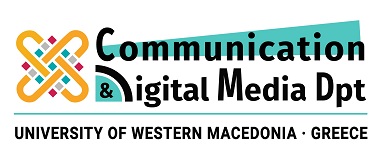CDM 8295 THEORY AND DESIGN OF DIGITAL GAMES
LEVEL OF STUDY: UNDERGRADUATE
COURSE UNIT CODE: CDM 8295
SEMESTER: 8th
COURSE TITLE: THEORY AND DESIGN OF DIGITAL GAMES
TEACHING WEEKLY HOURS: 3 H/W LECTURES
ECTS: 5
COURSE TYPE: CORE ELECTIVE
TEACHING AND EXAM LANGUAGE: GREEK
COURSE DELIVERY TO ERASMUS STUDENTS: YES (in English)
Digital games (DS) are environments that attract large numbers of users, as well as research interest in fields such as psychology, sociology, neuroscience, education, economics, and computer science.
The aim of the course is to introduce the student to the theory of games and gamification, the interdisciplinary approach to the study of video games and the role of games and gaming in the fields of communication (Advertising-Marketing, Education), information and and in the overview of the relevant research.
The course will also focus on creating scripts and games for entertainment and communication purposes.
For this purpose students will come in contact with game production software (GDevelop, Scratch, Kodu etc) for this purpose.
Also in the course students will come in contact with case studies, will play, study and analyze digital games studying their structure, function, influence on society and communication.
Upon successful completion of the course the students will be able to:
- understand the role of digital games and gamification in communication
- compare and evaluate digital games to achieve communication goals
- design and implement digital games using software (free or open source eg GDevelop, Scratch, Kodu)
- use the knowledge gained from other curriculum courses (eg vector graphics design, audio capture and editing, image editing) to create digital games
- design game scenarios to achieve communication purposes
- design gamification scenarios for other areas (eg education, advertising)
- create educational material with digital games (Game Based Learning) and material based on game principles
- develop collaborative, creative and critical thinking skills through digital literacy and interdisciplinary approach.
